Right-wingers fail again to block Swiss bid for UN Security Council seat
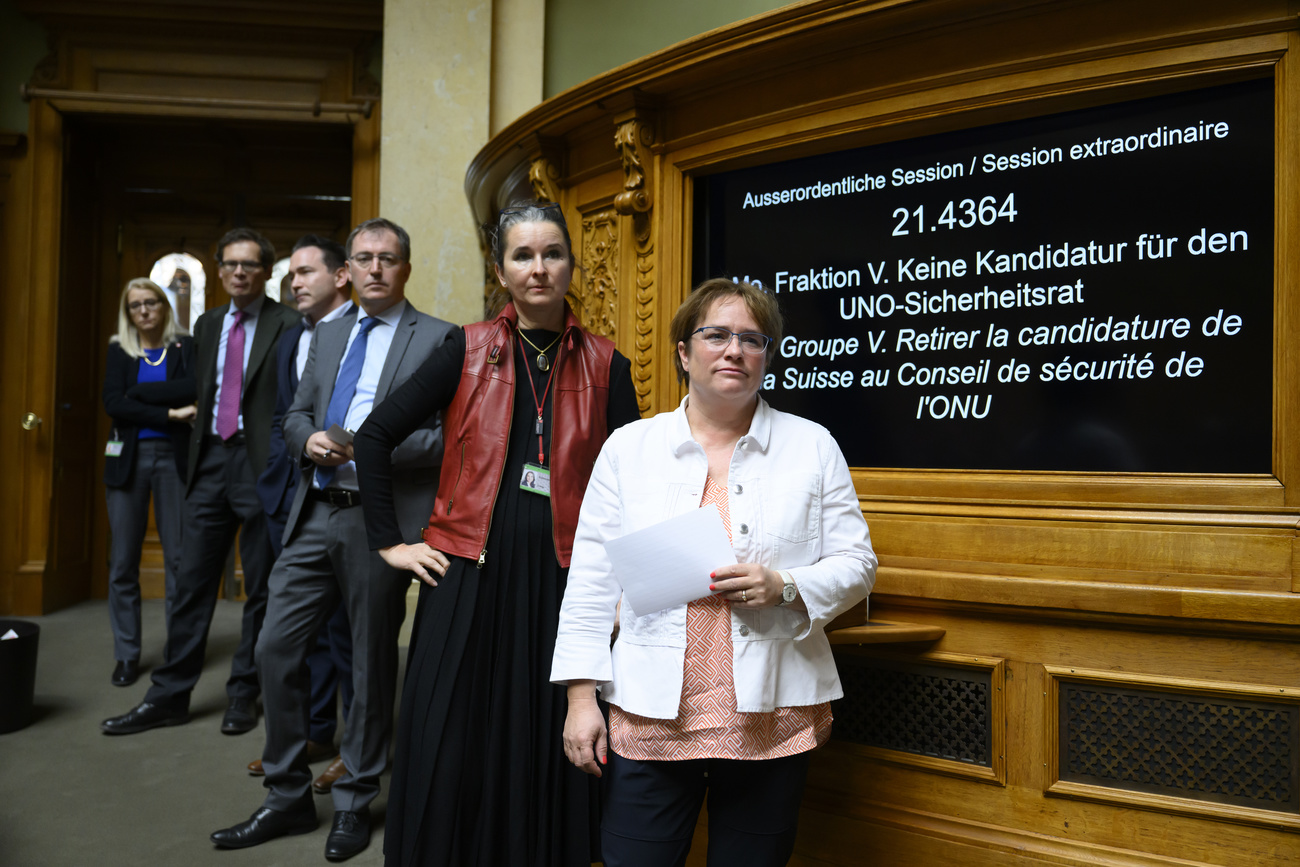
Opponents of Switzerland's bid for a non-permanent seat on the United Nations Security Council have suffered a setback in parliament.
The House of Representatives clearly rejected a call by the right-wing Swiss People’s Party for the government to withdraw its candidacy for a seat on the council for the years 2023/24.
Apart from the People’s Party, only a few members of the Centre Party came out in favour of the proposal on Thursday.
Opponents argued that the candidacy was undermining Switzerland’s traditional neutrality and endangering its status as a diplomatic broker of good offices.
The bid for a UN seat is a “relic of carefree times”, argued People’s Party parliamentarian Roger Köppel.
Swiss interests
Foreign MinisterExternal link Ignazio Cassis responded that a candidacy for the Security Council was in the interest of Switzerland and compatible with neutrality.
Switzerland could use its position to actively promote peace and international rules, he said.
“This is more necessary than ever in these dark hours,” said Cassis, referring to the Russian invasion of Ukraine.
The other chamber of parliament, the Senate, is due to discuss the demand for a withdrawal next Monday but it is not likely to support it.
Over the past ten years the People’s PartyExternal link has failed in parliament to block a Swiss bid for a non-permanent seat on the Security Council. The UN body is to decide on the Swiss bid in June.
Switzerland joined the UN 20 years ago following a nationwide vote in March 2002.
The Security Council is the highest and most important decision-making body of the United Nations. It consists of five permanent members: the US, Russia, China, France and the United Kingdom, the so-called veto powers. In addition, there are ten non-permanent members who are elected by the UN General Assembly for two years.
For historical reasons, the five permanent members of the Security Council – the victors of the Second World War – have the right of veto. They can block any decision. The non-permanent members therefore have an important role as mediating voices to resolve a deadlocked situation.
According to the UN Charter, the Security Council bears the main responsibility for maintaining world peace. It can impose sanctions or authorise military intervention if international security is threatened. Its decisions are binding under international law for all UN member states – this is in contrast to decisions of the General Assembly.
Switzerland is running for a non-permanent seat on the Security Council for the 2023/24 period under the slogan “A plus for peace”. The Federal Council decided and submitted the candidacy in 2011 after extensive consultations with parliament.
The elections will take place in June 2022 in New York. The electoral body is the UN General Assembly, comprising 193 countries. Switzerland’s chances are good, as only Malta is the only other country in the running for the two seats for Western countries.
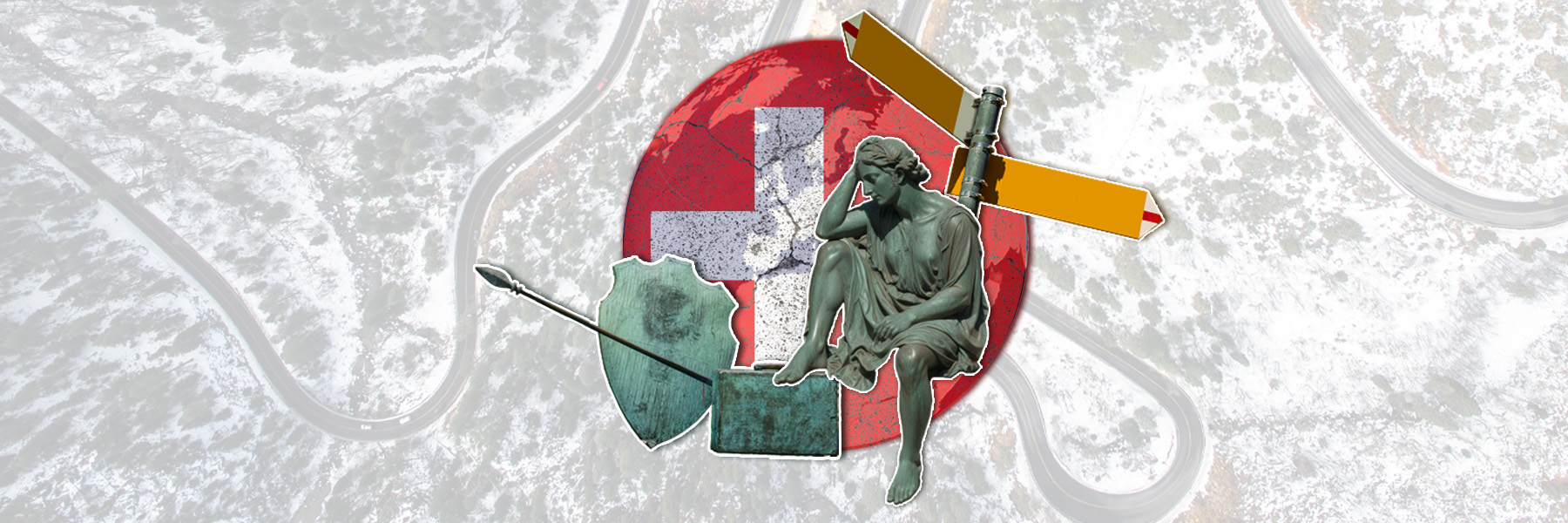
More
What does the future hold for Swiss neutrality?

In compliance with the JTI standards
More: SWI swissinfo.ch certified by the Journalism Trust Initiative



















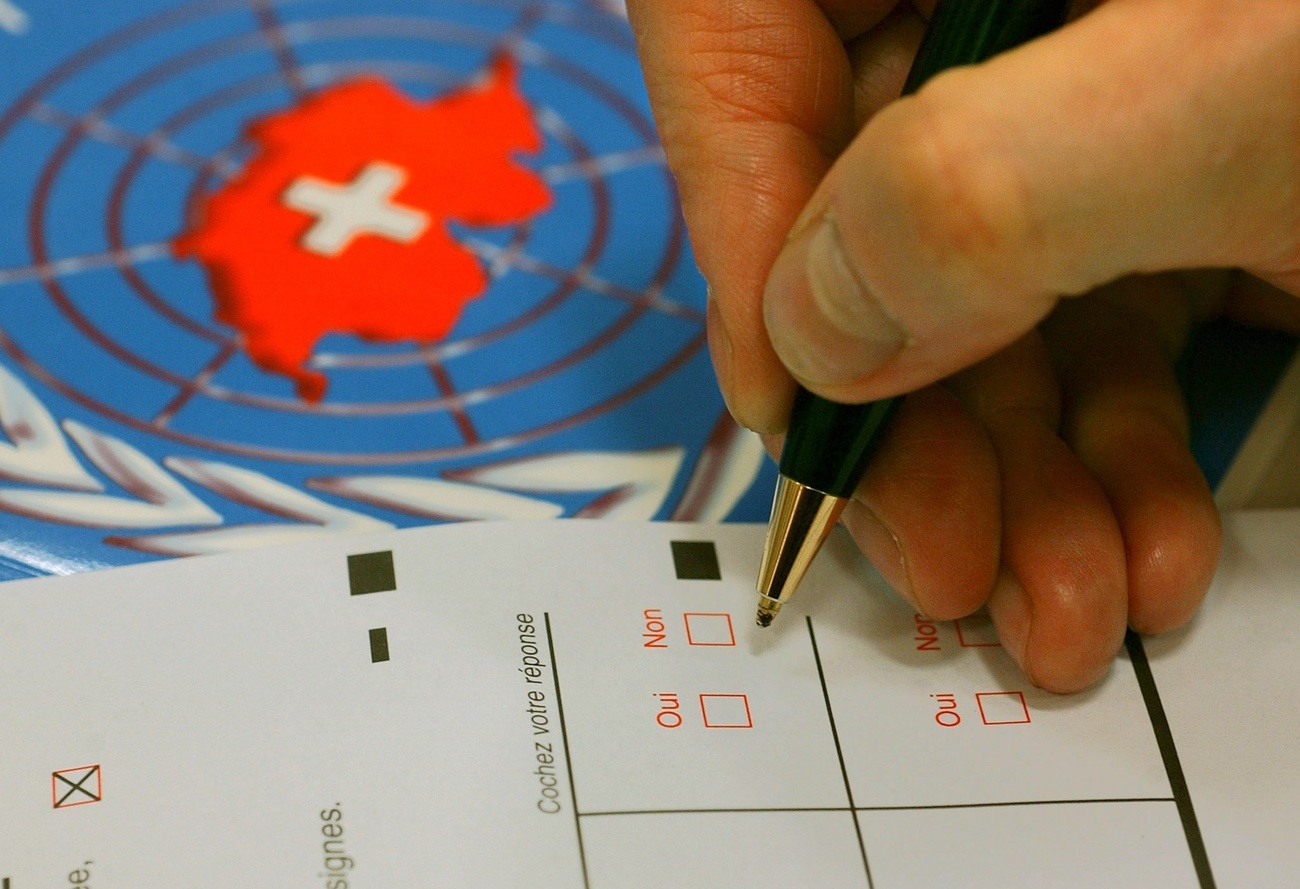

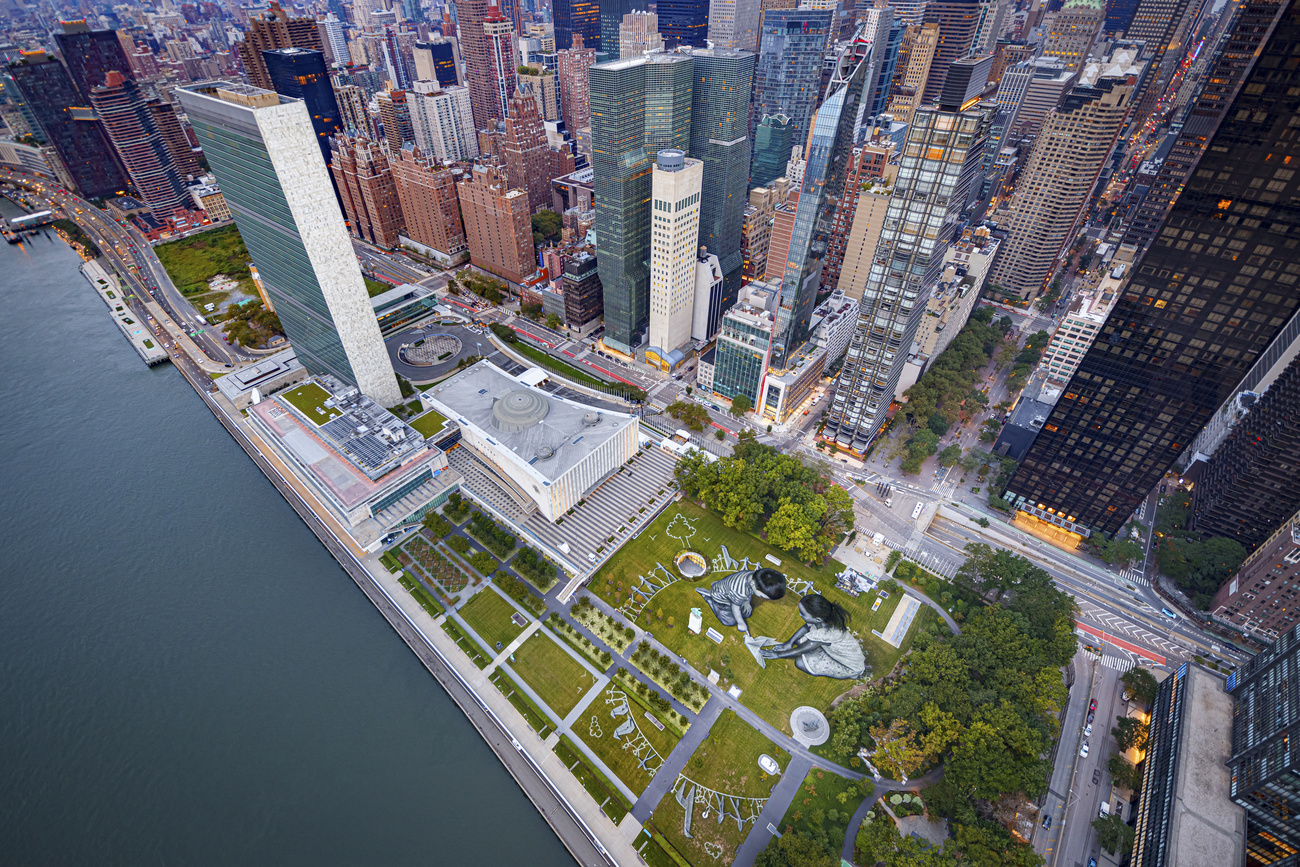
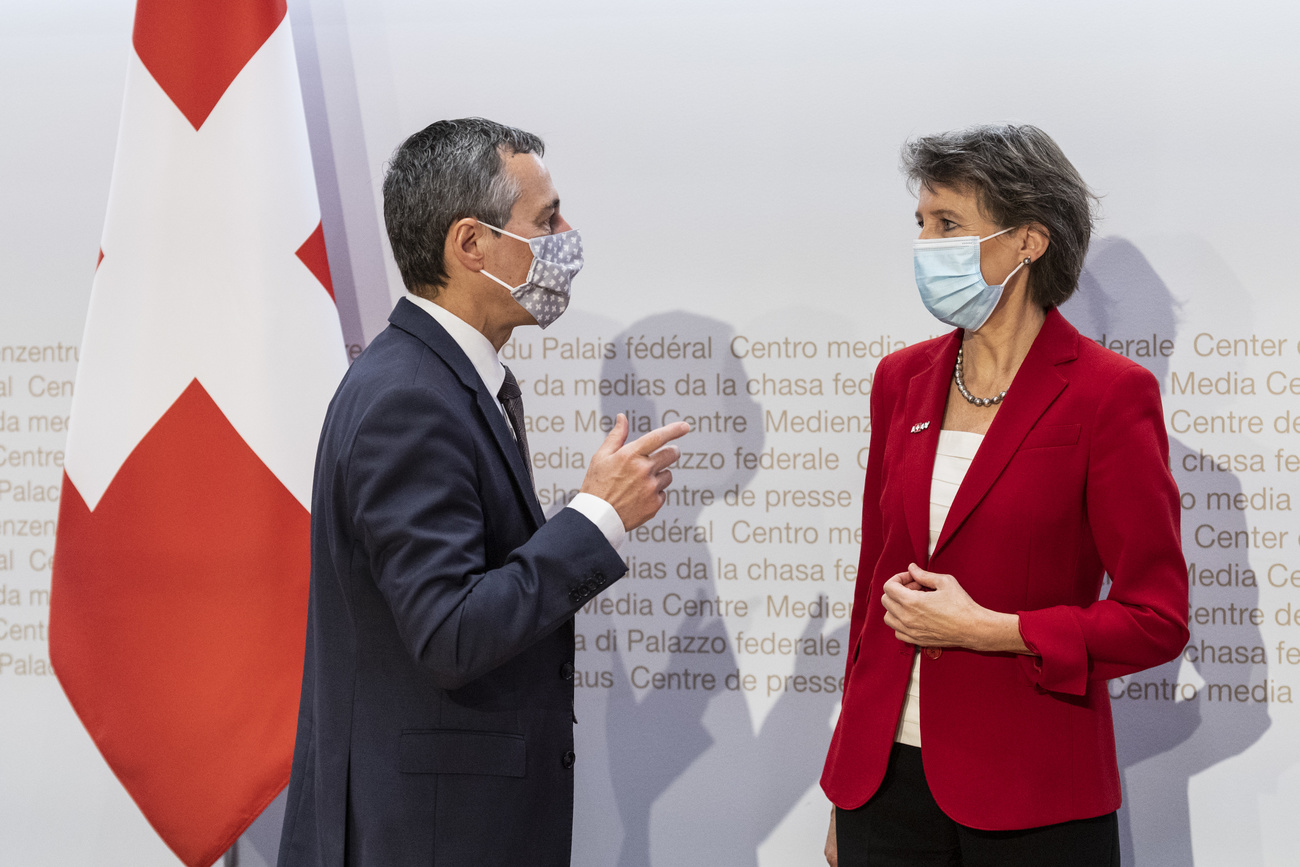
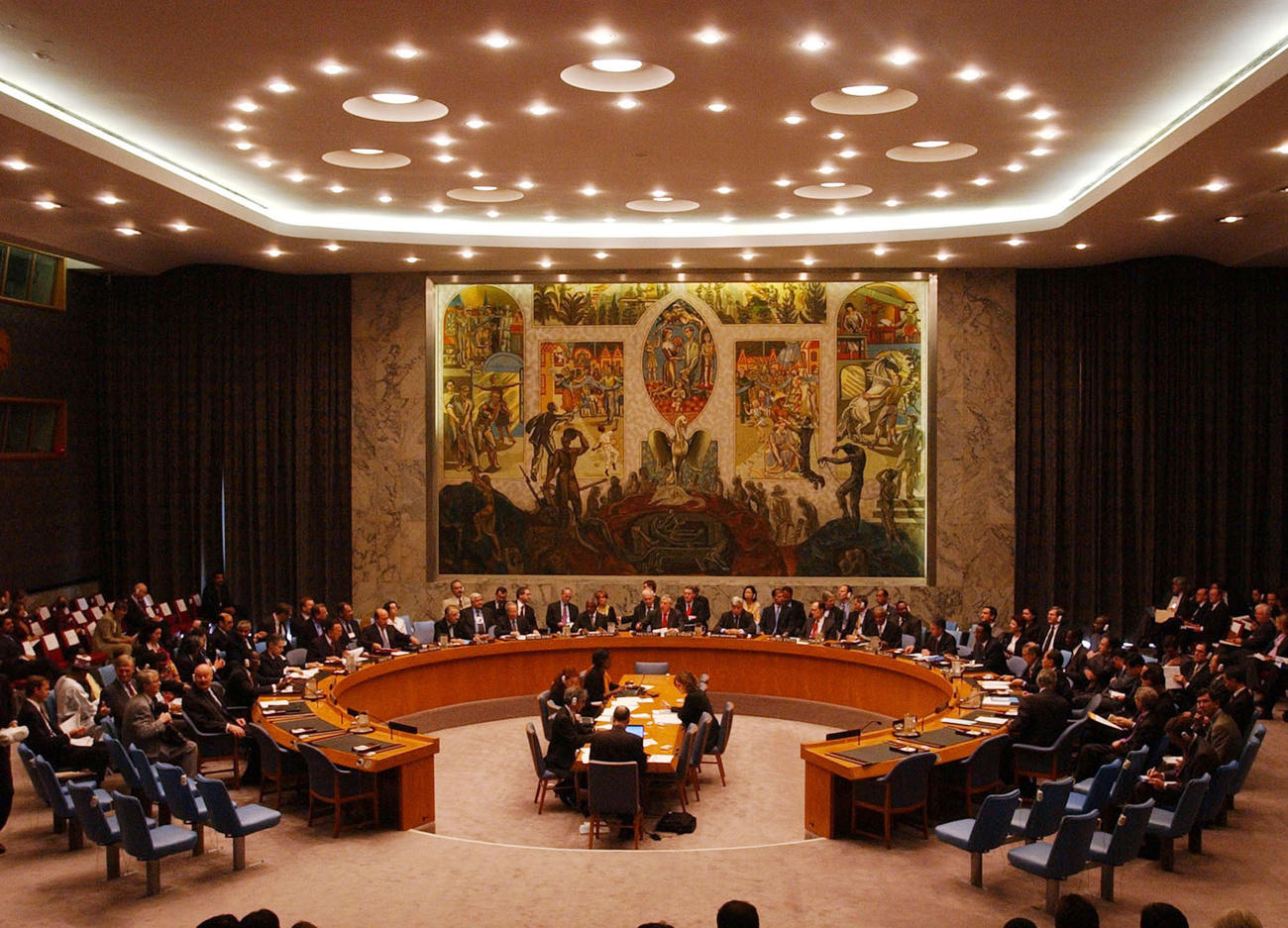
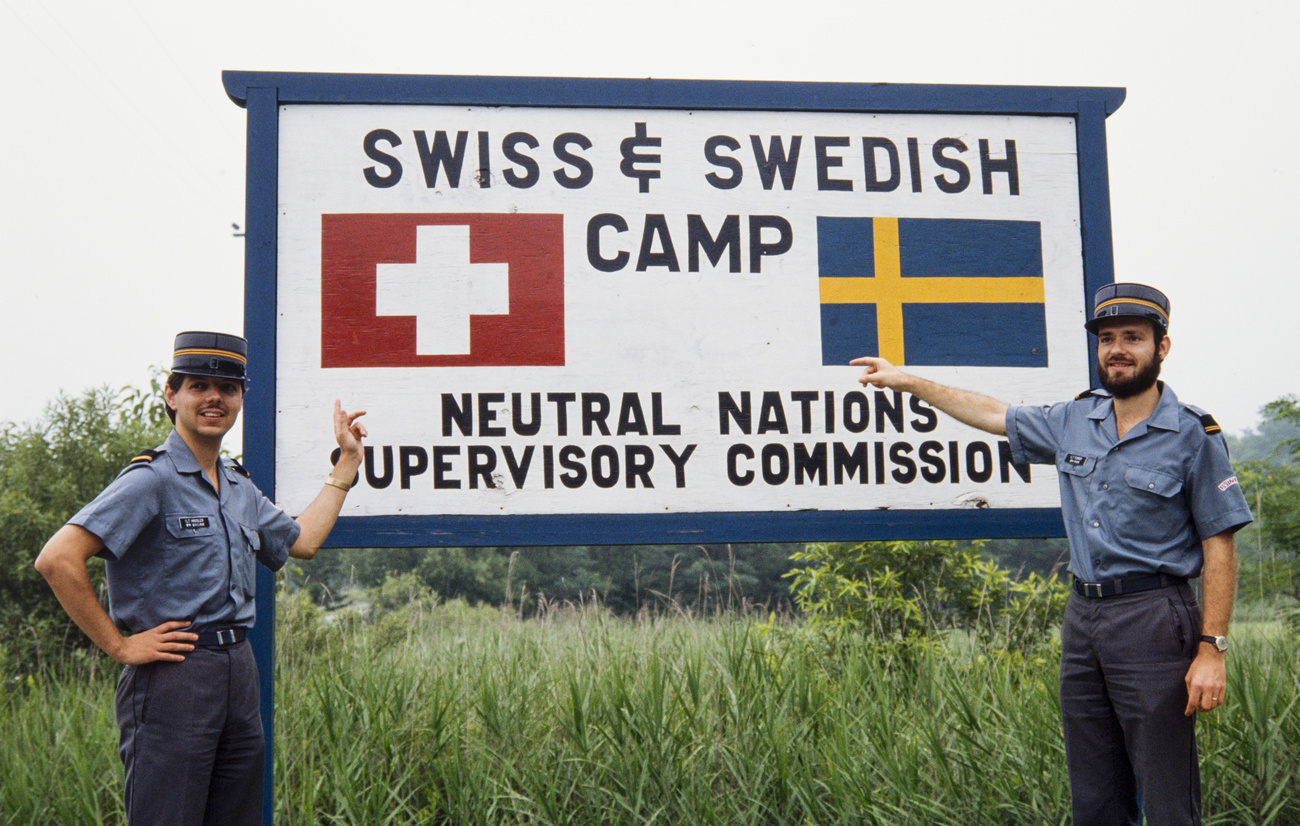
You can find an overview of ongoing debates with our journalists here . Please join us!
If you want to start a conversation about a topic raised in this article or want to report factual errors, email us at english@swissinfo.ch.